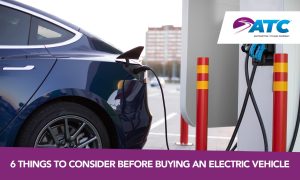
Electric vehicles are the future.
The combination of technology advances and high gas prices are making more buyers switch to EVs. EV registrations grew 60% in the 1st quarter of 2022 with 35,000 EV sales.
Nearly every vehicle manufacturer has pledged that its offerings will increasingly become electric. GM has said 40% of U.S. models will be electric by the end of 2025. Ford’s new Mustang Mach-E SUV has done well and the popular F-150 pickup truck features an electric version. Jaguar declared it will become an all-electric brand by 2025, and Audi offers the high-performance e-tron GT and RS e-tron GT. Volkswagen’s new compact ID.4 is set to challenge the Tesla Model 3.
New brands include Aspark, Bollinger, Polestar, Byton, Canoo, Faraday, Lagonda, Lucid, and Rivian.
According to Statista, EVs accounted for only 2.3% of sales in the U.S. in 2020, but elsewhere, sales are much higher, including Finland at 18.1%, Netherlands at 24.9%, Sweden at 32.2%, Iceland at 45%, and Norway at 74.8% EV sales are growing – everywhere!
Here are 6 things about EVs your customers should consider before buying one.
1 – There are several different types of EVs
- EV. This is the catch-all name for all electric vehicles and is not a specific type of EV.
- BEV. Battery-powered Electric Vehicles use only a battery-powered electric motor and produces no tailpipe emissions. Sometimes called an AEV (All Electric Vehicle).
- HEV. Hybrid Electric Vehicles run on both an electric motor and an internal combustion engine. They use regenerative braking to charge the battery.
- PHEV. Plug-in Hybrid Electric Vehicles plug into power to charge their batteries and use an internal combustion engine.
- FCEV. Fuel Cell Electric Vehicles run on compressed hydrogen but are not widely available yet.
2 – EVs are all about driving range
The first thing to consider before buying an EV is how many miles are driven each week, and how common car charging stations are in the driving area. More employers and cities are adding charging stations, but they still are not as common as gas stations.
A couple of notes about EV range:
- Most BEVs have a range of more than 200 miles on a full charge, and some can even reach 400 miles. Much like horsepower used to be a selling point for internal combustion cars, the performance standard for EVs will be range.
- BEVs perform well in start-and-stop driving but consume much more battery power at steady highway speeds.
- Hot and cold temperatures reduce EV range because of AC and heater use.
3 – EV charging
Many EV owners live in constant fear of running out of battery charge without being near a charging station. The United States Department of Energy Alternative Fuels Data Center shows around 48,000 locations around the country and publishes an interactive map of electric vehicle charging stations. And of course, users can charge their vehicles at home.
There are 3 types of chargers for EVs:
- Level 1. This type of charger uses a household three-prong outlet, but few EV owners use this method because it can take too long to charge. A standard outlet can only add about 3 or 4 miles of range per hour.
- Level 2. These chargers need 240 volts of power and can add between 15 and 60 miles of range per hour.
- Level 3. These chargers are mainly found in public charging stations that cost money to use but can add 100 miles of range in 30 minutes.
4 – EV home charging unit costs
How much do EV charging units cost? A budget portable Level 2 charger can be bought for less than $200 with more expensive models costing closer to $400 or $500. These will come with longer cables and higher power capabilities.
Wall-mounted chargers can cost between $400 and $500 but can go as high as $1000. A professional at-home charger installation could cost between $2500 and $3000.
5 – The cost of charging an EV
Public charging stations aren’t free and EV owners have had to change their thinking from miles per gallon to average cost per kilowatt hour (kWh.)
An average EV gets around 3 to 4 miles for every kWh. If driven 1,000 miles a month with a $0.20 per kWh electric rate at the buyer’s home, the charging cost would be $55 to $65 each month. The average cost to use a public charging station is between $0.40 and $0.70 per kWh, so a full charge costs around $30.
6 – The batteries
The heart of an EV is the battery system, and like all batteries, they degrade and lose charging capacity over time. So, when buying a new EV, pay close attention to the reviews of its battery system. If buying a used EV, the battery life and condition can be used as a bargaining tool.
It’s also important to find out if the battery has been replaced. If so, someone else went through the trouble and cost of doing it. Finally, find out how much of the battery warranty is remaining. Most battery warranty coverages are around 8 years / 100,000 miles, but make sure that the warranty is transferrable.
Each year, sales of EVs will increase and more of your customers will be interested in learning more about them. We hope this blog post helps educate you on how to educate them. One thing will always remain the same: EVs will still need to be properly titled and licensed!
Automotive Titling Company (ATC) provides the industry’s most accurate tax, title, and registration fee information to make the car buying experience easier for your shoppers and more profitable for dealers, lenders, and auto technology companies. We work with every DMV, in every jurisdiction in the country, to make it easier for you to sell cars. To learn more, contact us.




